Female Friendship and the Immigrant Experience Examined In The Heart Sellers — This Houston Play Is Full Of Laughter and Quiet Power
Two Asian Women New To America Find a Real Connection
BY Adrienne Jones // 02.18.25Stages' The Heart Sellers (Photo by Melissa Taylor)
“Your friend is your needs answered. For you come to him with hunger, and you seek him for peace.” – Khalil Gibran
Two young women, girls practically, in their early twenties – Luna and Jane, from Korea and the Philippines respectively – find themselves alone on Thanksgiving in a medium-sized American city in 1973. Their husbands, recently minted medical residents, are working through the holiday on a typical long shift. And so, the recent brides, brand new to the United States and strangers to each other, have each decided to go to a supermarket. Such is the setup for the new play The Heart Sellers, being performed at Houston’s Stages through this Sunday, February 23.
When we first see the two women in this heartfelt play, we discover they’ve met by chance. In through the door of Luna’s studio apartment they come, loaded down with all the necessaries for a Thanksgiving dinner, including a turkey, still frozen.
With only Luna and Jane onstage for the one-act performance — and away from the male gaze or anyone else’s, Korean American playwright Lloyd Suh has artfully constructed his 2023 script to run on two tracks. The delightful result is like a lemon meringue pie: fluffy on the top, with the substance — mostly sweet and a bit tart — at the base.

With a deft hand and light-hearted humor, Suh explores the universal nature of female friendship and its unique aspects of companionship, shared confidences and comfort.
In a tour de force of chatter, Luna explains to the painfully shy Jane that she is the first guest in her apartment. But the ice is broken when Luna admits she has no idea how to cook much of anything. Jane’s first words reveal she knows how to prepare the frozen turkey, and the yams too. It seems Jane’s been improving her English by watching television (alone) “all day,” including Julia Child’s famous cooking show, known for recipes best suited to the more advanced student.
The two women are nothing short of adorable, feeling their way with each other. Luna shows Jane her photograph album, and slowly they share hints about their wonderment and sometimes dismay at how different life is in the United States, and how hard it is to be away from their families.

Recognizing it’s going to take a long time to cook a frozen turkey, they open a bottle of wine and, despite feeling as if they might be doing something naughty, find it makes them more expansive than they had been before.
Luna puts the Beatles’ All My Loving on the record player. They dance.
They intimate that intimate evenings with their new husbands can sometimes be less than enchanted, and that they are bewildered and amused by a certain characteristic of their manhood. Like co-conspirators, they wonder aloud what it would be like to be a man, “but still with a brain.”
But mostly their reflections have to do with reconciling their new and very different surroundings with what they left behind – their loved ones, everything that is familiar and turbulent political times: “Men who hurt our home. Burn. Break. Fall apart. One thing worse than having too much power is having none.”
The play’s title is drawn from the Immigration and Nationality Act of 1965, commonly known as the Hart-Celler Act after co-sponsors Sen. Philip A. Hart and Rep. Emanuel Celler. It granted thousands of professional workers a new path to citizenship and eliminated restrictive, nationally based immigration that had favored, as Luna puts it, “people from Europe or white people places.”
Luna and Jane understand they and their husbands have been able to come to the United States as a result of the new law.
“We’re the lucky ones,” Luna tells her new friend, and yet a question mark hovers in the air. The Heart Sellers does not paint too rosy a picture.

The Heart Sellers’ Real Meal
Suh’s second track, the lemon in the pie, is a serious one, which undergirds the body of the script, giving it weight and timelessness expressed through The Heart Sellers many poignant moments. Suh invites us to ponder along with him the meaning of home and whether, or at least how, one can belong in a new land.
For Luna and Jane, these questions are deeply personal, particularly in an era when there were fewer Asian immigrants than there are now.
At one point Luna muses: “We are the heart sellers. It’s us, it’s our hearts, and we sell them away.”
Suh told an audience in New Haven last year he’s interested in finding ways to tell his parents’ story to his kids.
“In the past decade or so,” Suh noted. “I’ve been writing a number of plays that investigate unexplored or completely forgotten moments in Asian American history, which is most of Asian American history — the geographies such as Chinatowns, stereotypes, economic realities, legislative realities and the patterns of migration.”
Viewed through a broad lens, we know Luna and Jane’s experiences and feelings are universal and enduring, feelings we can relate to. Sometimes they are literal, as with the global migration going on around us or that we may be part of. But sometimes they are metaphorical, as when we struggle to find our roots or break away from them. Or discover in a different chapter of our lives that we may have a different home.

It is difficult to imagine performances more nuanced and captivating than Mai Lê’s as Luna and Alexandra Szeto-Joe’s as Jane. They work beautifully together and capture the oftentimes wistfulness of their characters without forsaking their abundant charm and irrepressible zest for life.
Designer Zhuosi “Joyce” has created a convincingly authentic 1970s starter apartment, possibly nostalgic for some, down to its avocado green refrigerator and wall-mounted phone with a dial.
A play with virtually no action that takes place entirely in one room can be a challenge for a director. It is fascinating to observe how skillfully The Heart Sellers director Miranda Cornell keeps both actors occupied with bits of business that bring realism and movement to the stage.
Through her guidance, Luna and Jane never appeared rushed or confused. And most importantly, they never lose contact with the audience who are enjoying every moment of the performance, hanging on every word and cheering them on.
It is clear Cornell loves and respects The Heart Sellers’ two female characters. She made sure we recognized that Luna and Jane brought with them from far away not just their fears, but their youthful hopes and many dreams.
Jane dreams of being a painter. “Maybe I can paint this music,” she tells Luna. “Paint the picture of my friend.”
The Heart Sellers by Lloyd Suh runs at Stages, located at 800 Rosine Street, through this Sunday, February 23. Performances begin at 7 pm Wednesdays through Saturdays and at 2 pm Saturdays and Sundays. For information and tickets, go here.
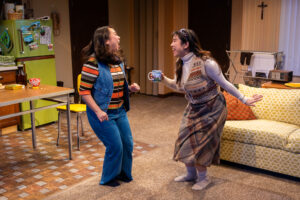
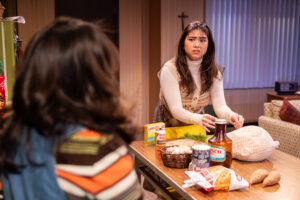
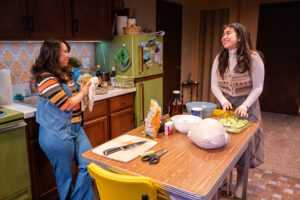
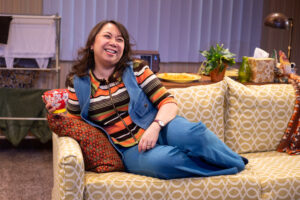
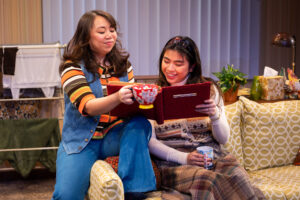
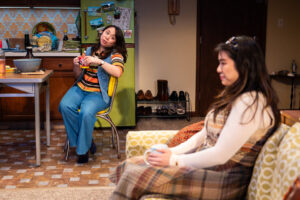
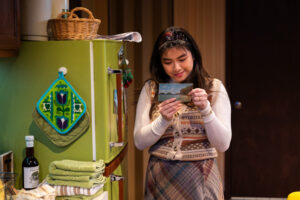
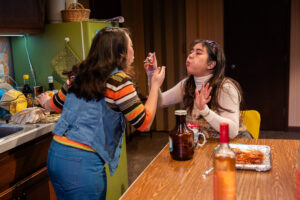

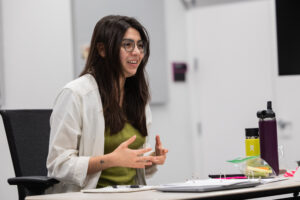
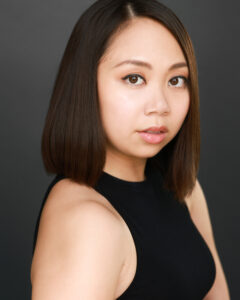







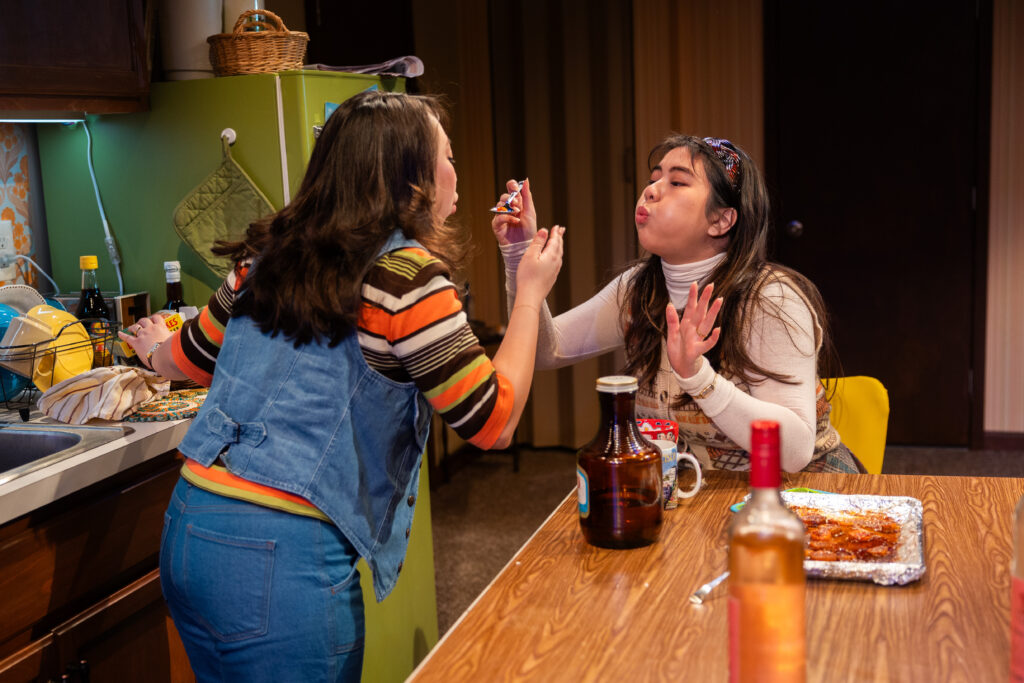

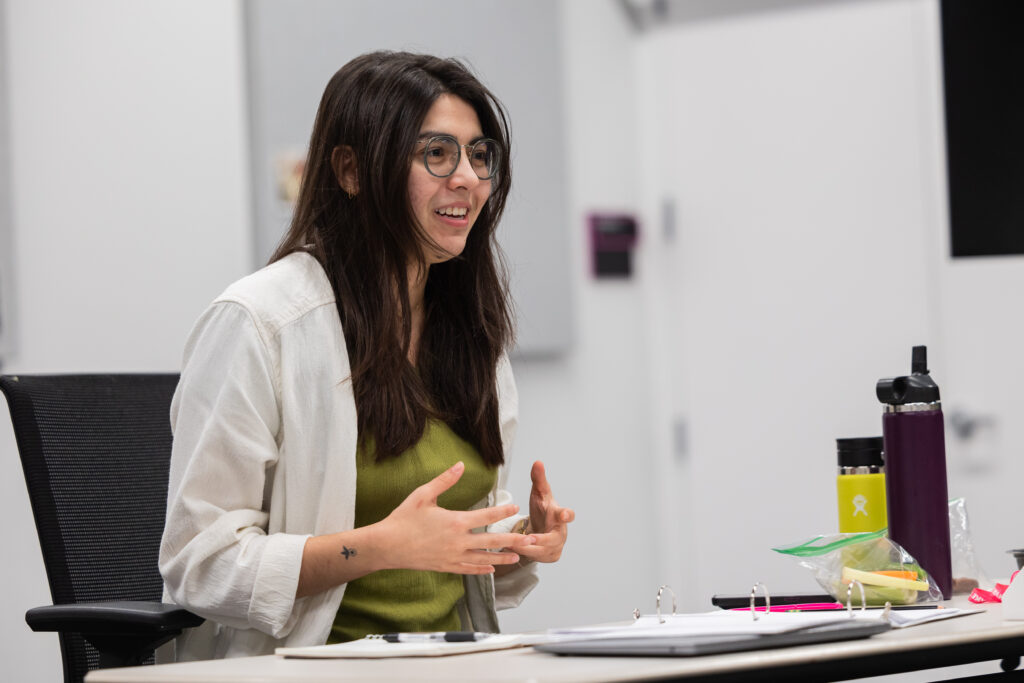
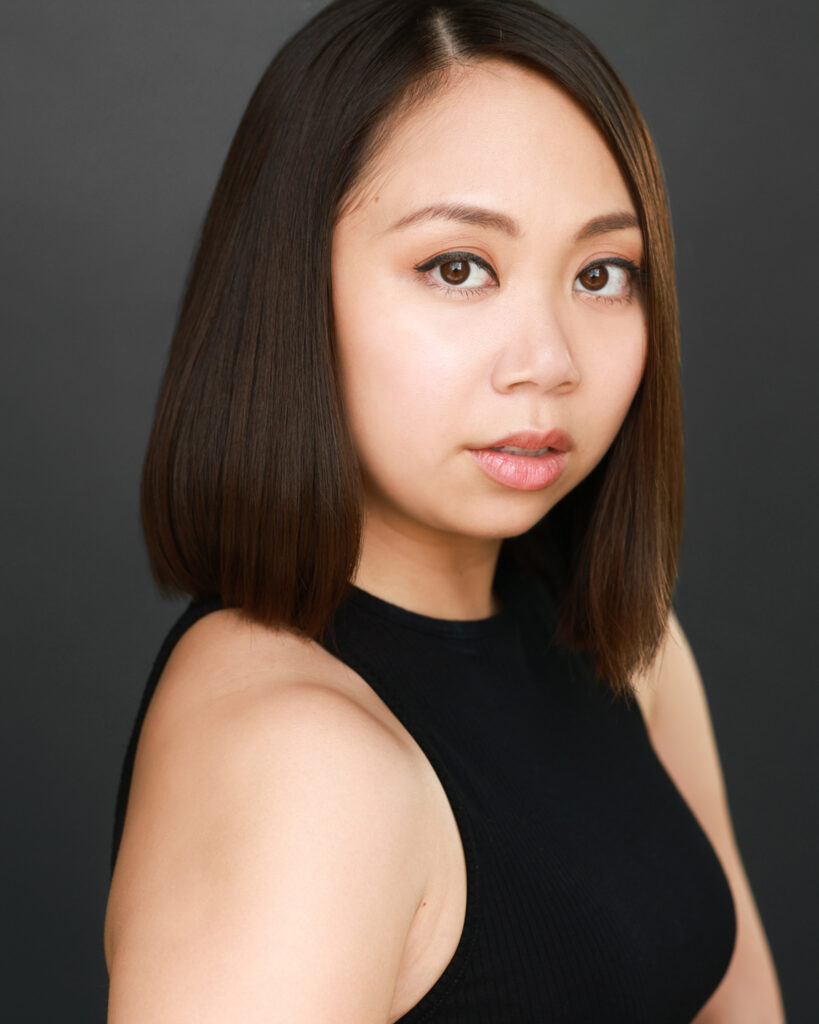





_md.jpeg)






